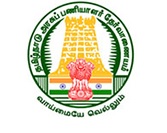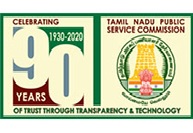TNPSC Child Development Exam Syllabus 2022
Organisation : Tamil Nadu Public Service Commission (TNPSC)
Exam Name : TNPSC Child Development Examination
Standard : PG Degree Standard
Subject Code : 374
Announcement : TNPSC Child Development Exam Syllabus
Website : https://www.tnpsc.gov.in/English/new_syllabus.html
TNPSC Child Development Exam Syllabus
TNPSC Child Development Exam Syllabus are given below,

UNIT 1 : Growth And Development
1.1 Definition and Distinction of growth and development
1.2 Principles of growth and development
1.3 Factors affecting growth and development
1.4 Domains of development and its interrelatedness
1.5 Heredity – Environment interaction
UNIT 2 : Theories Of Human Behaviour And Development
2.1 Evolutionary and biological theories – Gesell’s maturational developmental theory, Ethological theory, Brofenbrenner’s ecological theory, Vygotsky socio- cultural theory
2.2 Learning and behavioural theories – Pavlov’s Classical conditioning, Skinner’s operant conditioning, Watson behaviourism, Bandura’s social learning theory
2.3 Language theories – Behaviourist perspective, Nativist perspective and Interactionist perspective
2.4 Cognitive theories – Piaget’s Cognitive theory, Information Processing
2.5 Psycho-analytic theories – Freud’s psycho-analytic theory, Erikson’s psycho- social theory
2.6 Moral development theories – Piaget’s moral theory, Kohlberg’s moral theory
UNIT 3: Stages/Periods Of Child Development
3.1 Five stages of child development and its characteristics – Prenatal, Infancy and Toddlerhood, Early childhood, Late childhood and Adolescence
3.2 Havighurst’s Developmental Tasks – Infancy to Adolescence
3.3 Concept and importance of developmental milestones
UNIT 4 : PRENATAL DEVELOPMENT AND BIRTH
4.1 Conception – Structure of Ovum and Sperm, process of fertilization
4.2 Prenatal development – the period of ovum, embryo and foetus
4.3 Factors influencing/debilitating prenatal development
4.4 Genetic counseling- Meaning and importance
4.5 Signs and symptoms of pregnancy
4.6 Prenatal diagnostic methods – amniocentesis, fetoscopy, chorionic villus sampling, ultrasound, maternal blood analysis, cordocentesis.
4.7 Stages of child birth and Types of delivery
4.8 Birth complications – Oxygen deprivation, preterm and low birth weight infants, post term infants, still birth
UNIT 5: Infancy And Toddlerhood (Birth To Two Years)
5.1 Neonates – appearance, adaptations/adjustments; New born reflexes, APGAR Scale
5.2 Physical development-body growth, brain development, motor development, perceptual development
5.3 Cognitive development-Sensori-motor stage
5.4 Language development – receptive and expressive language
5.5 Emotional development – development of basic emotions, recognizing and responding to the emotion of others, the emergence of complex emotions, temperament
5.6 Social development – Development of attachment and its four phases
UNIT 6 : Early Childhood (2-6 Years) And Late Childhood (6-12 Years)
6.1 Physical development – body growth and brain development, motor development, handedness
6.2 Cognitive development – The Preoperational stage and the Concrete Operational stage
6.3 Language development – vocabulary development, grammatical development, pragmatics, Bilingualism, Multilingualism
6.4 Emotional development – self understanding, changes in complex emotions, improvements in emotional self-regulation, understanding others
6.5 Social development – peer relations, peer groups, friendships
6.6 Foundations of moral development and sex differences
6.7 Habit formation – principles, importance and methods
6.8 Common behaviour problems during childhood period
UNIT 7 : Early Childhood Care And Education (ECCE)
7.1 ECCE- Definition, Concept, Significance, Objectives and Scope of ECCE
7.2 Current trends in ECE – Global and Indian context
7.3 Types of ECCE settings
7.4 ECCE professionals – Professionals working with children and working for children, prerequisites and characteristics of professionals
7.5 Play and its characteristics. Role of play in overall development of children and teacher’s role.
7.6 Importance of Parental involvement in Early learning

UNIT 8 : Adolescence
8.1 Physical development – Puberty, Growth spurt, Primary and secondary sexual characteristics, Psychological impact of physical changes
8.2 Cognitive development – Formal operational thought
8.3 Psychological development – Self concept, Self esteem, Interest and Attitude
8.4 Identity paths according to James Marcia
8.5 Moral development – Sex differences,
8.6 Social development – Peer relationship and friendship, Parent adolescent relationships and conflict, Sibling relationship
8.7 Physiological and psychological problems and challenges, management strategies
UNIT 9: Children With Diverse Needs
9.1 Definition, classification (RPWD Act), causes, characteristics and remedial measures for children with special needs
9.2 Definition, classification and characteristics, enrichment measures for Gifted children
9.3 Children in difficult circumstances – Child prostitutes, trafficked children, street children, refugee children and child victims of war/natural calamities, Juvenile delinquents, Abused children
9.4 Gender and societal disparities – Infanticide, foeticide, girl child, children of prostitutes and AIDS affected parents
UNIT 10 : Guidance And Counselling
10.1 Meaning, definition and scope and approaches of guidance and counseling
10.2 Physical and mental health counselling
10.3 Educational, vocational and career guidance
10.4 Child welfare and advocacy
Download Syllabus
TNPSC Child Development Exam Syllabus Link:
http://www.syllabus.gen.in/uploads/pdf2022/2997-syllabus.pdf